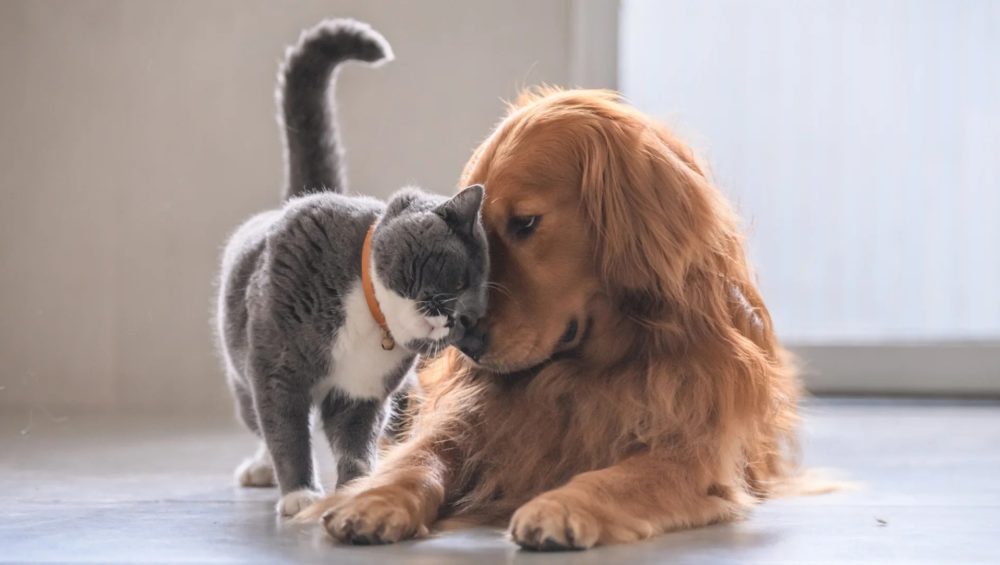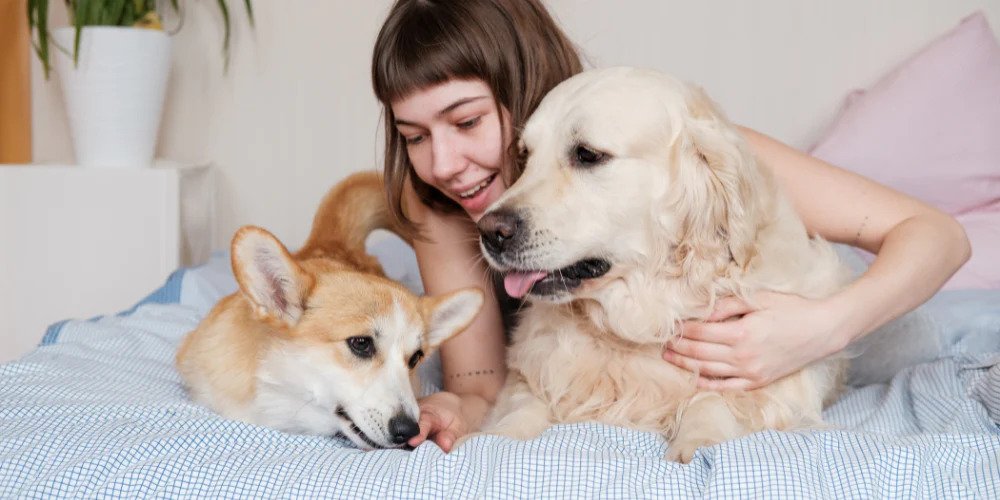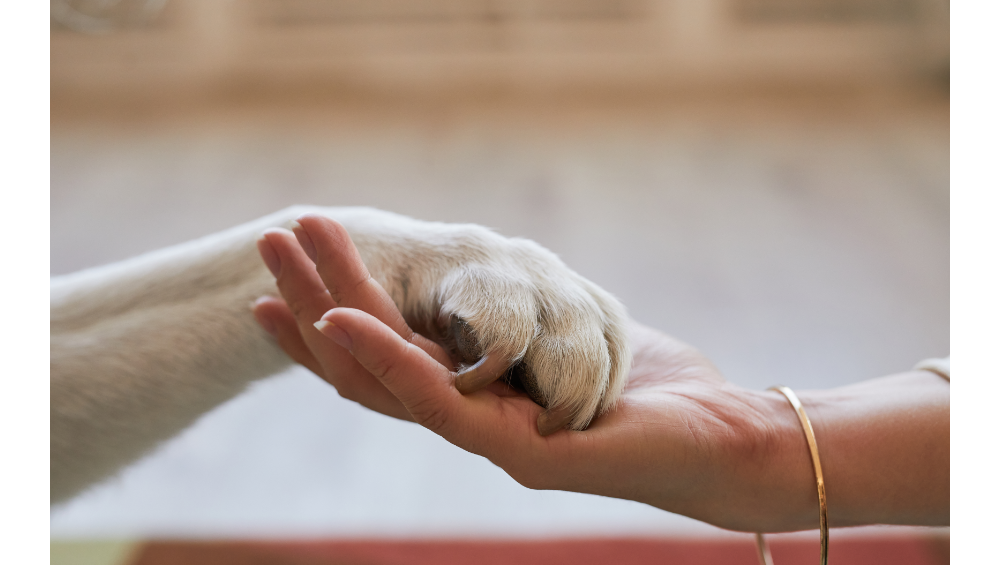Pet owners exhibit unwavering dedication and boundless affection for their animal companions, often going to great lengths, like filling every corner with dog beds or meticulously choosing top-quality cat food. Despite the unique ways they express their love, all pet parents share a common goal: ensuring their beloved animals enjoy long, joyful, and healthy lives. To achieve this, comprehensive care across their pets’ lifetimes is essential.
We’ve worked with our friends at the PetMD Center in the USA to create an extensive pet wellness guide. Regardless of your pet’s age, this guide is full of insightful recommendations, helpful hints, and useful checklists that will improve their general health. Our joint goal is to support you in making sure your pet grows, stays healthy, and lives a happy life with you.
Food:-
Pets require food that satisfies their unique nutritional needs, just like people do. The nutritional needs of dogs are satisfied by dog foods, and the nutritional needs of cats are satisfied by cat foods. Significantly, their nutritional requirements vary greatly. Dogs of different ages need different foods. Special diets may be necessary for pets with health concerns. Because many of the items we eat, like salt, garlic, and onions, are terrible for our pets’ health and can make them sick or even kill them, table scraps are generally not good for dogs or cats.
Remember to feed pets the appropriate quantity of food as well! Overfeeding or overindulging in sweets can make your pet obese, which can then lead to other health issues like kidney stones, heart disease, and more. To prevent these kinds of ailments, consider your alternatives when it comes to pet food. If you’re unsure about the meals that are best for your pet, seeing your veterinarian is a wonderful idea!
Sleep:-
Sleep is undeniably vital for your pet’s health, not to mention your own peace of mind. Pets have a substantial need for sleep, with specific requirements based on their age:
- Puppies, in their early stages of life, typically necessitate an impressive 18 to 20 hours of sleep per day.
- Adult dogs, while needing less sleep than their young counterparts, still require a substantial 8 to 13 hours of rest daily to stay healthy and alert.
- Kittens, much like puppies, need a considerable amount of sleep, averaging nearly 20 hours a day for their growth and development.
- Adult cats, too, dedicate a significant portion of their day to slumber, with an average of 13 to 16 hours of sleep required for their overall well-being.
By understanding and accommodating your pet’s sleep needs, you play a crucial role in ensuring they lead a happy and healthy life.
Play:-
Playing with your pet is very important for several reasons. It helps your cat or dog release built-up energy and prevents undesirable habits, such as picking fights with other pets or scratching the sofa.
Moving also helps cats maintain a healthy weight and keeps muscles and joints strong, which can help them live longer. On top of this, pets playing keeps the animal’s mind active and alert. Our feline friends are intelligent creatures and need mental stimulation.
unwavering dedication and boundless affection for their animal companions, often going to great lengths, like filling every corner with dog beds or meticulously choosing top-quality cat food. Despite the unique ways they express their love, all pet parents share a common goal: ensuring their beloved animals enjoy long, joyful, and healthy lives. To achieve this, comprehensive care across their pets' lifetimes is essential. We've worked with our friends at the PetMD Center in the USA to create an extensive pet wellness guide. Regardless of your pet's age, this guide is full of insightful recommendations, helpful hints, and useful checklists that will improve their general health. Our joint goal is to support you in making sure your pet grows, stays healthy, and lives a happy life with you.
Food:-
Pets require food that satisfies their unique nutritional needs, just like people do. The nutritional needs of dogs are satisfied by dog foods, and the nutritional needs of cats are satisfied by cat foods. Significantly, their nutritional requirements vary greatly. Dogs of different ages need different foods. Special diets may be necessary for pets with health concerns. Because many of the items we eat, like salt, garlic, and onions, are terrible for our pets' health and can make them sick or even kill them, table scraps are generally not good for dogs or cats.
Remember to feed pets the appropriate quantity of food as well! Overfeeding or overindulging in sweets can make your pet obese, which can then lead to other health issues like kidney stones, heart disease, and more. To prevent these kinds of ailments, consider your alternatives when it comes to pet food. If you're unsure about the meals that are best for your pet, seeing your veterinarian is a wonderful idea!
Sleep:-
Sleep is undeniably vital for your pet's health, not to mention your own peace of mind. Pets have a substantial need for sleep, with specific requirements based on their age:
Puppies, in their early stages of life, typically necessitate an impressive 18 to 20 hours of sleep per day.
Adult dogs, while needing less sleep than their young counterparts, still require a substantial 8 to 13 hours of rest daily to stay healthy and alert.
Kittens, much like puppies, need a considerable amount of sleep, averaging nearly 20 hours a day for their growth and development.
Adult cats, too, dedicate a significant portion of their day to slumber, with an average of 13 to 16 hours of sleep required for their overall well-being.
By understanding and accommodating your pet's sleep needs, you play a crucial role in ensuring they lead a happy and healthy life.
Play:-
Playing with your pet is very important for several reasons. It helps your cat or dog release built-up energy and prevents undesirable habits, such as picking fights with other pets or scratching the sofa.
Moving also helps cats maintain a healthy weight and keeps muscles and joints strong, which can help them live longer. On top of this, pets playing keeps the animal’s mind active and alert. Our feline friends are intelligent creatures and need mental stimulation.






